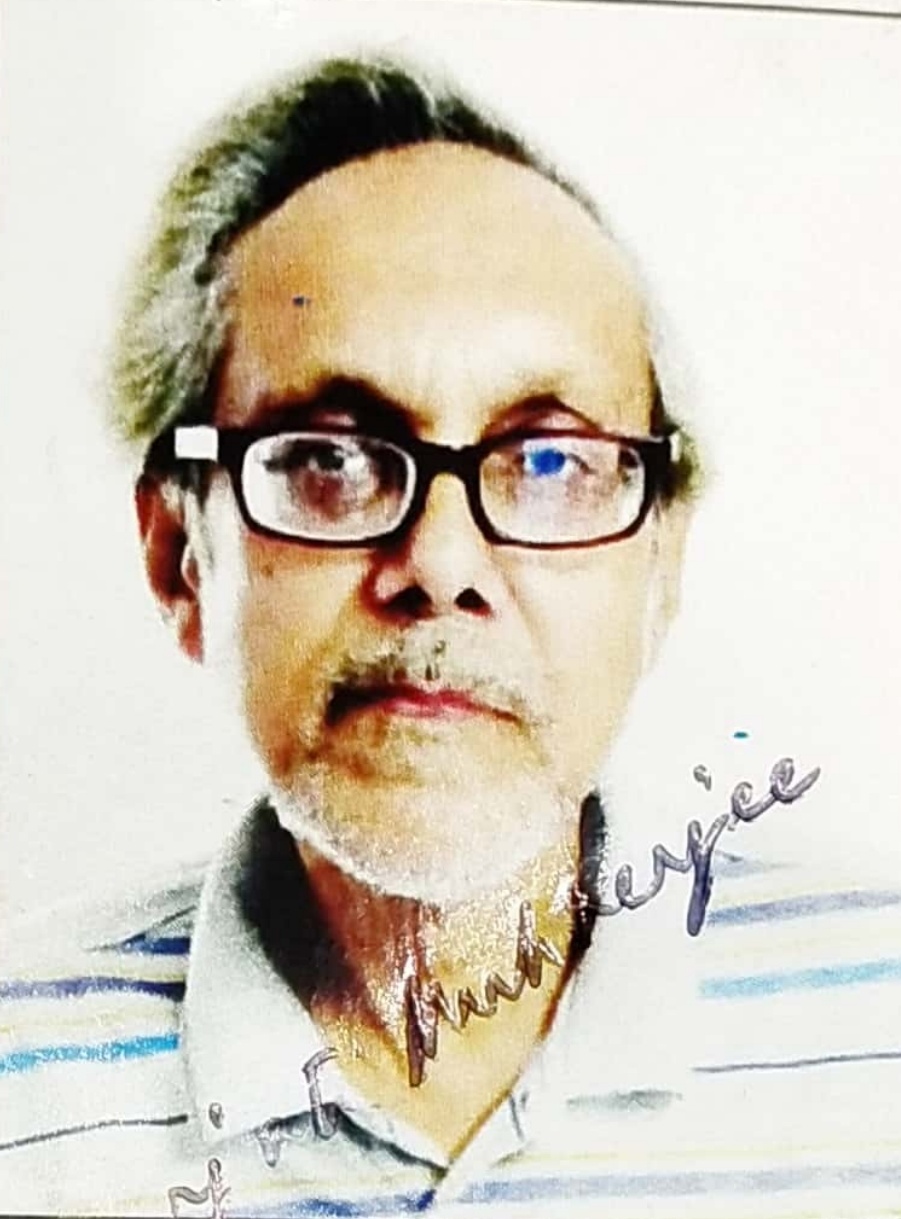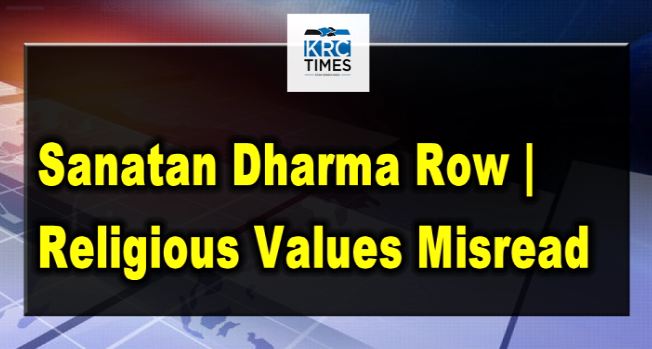Sanatan Dharma, noted the judge, was ‘intended to be a way of life but somewhere down the line the idea that it was only about promoting casteism and untouchability had spread
 Dhurjati Mukherjee I INFA Service
Dhurjati Mukherjee I INFA Service

Amidst the ongoing controversy over Sanatan Dharma, the Madras High Court has made some noteworthy observations, which need serious attention by those debating to score political brownie points. It said, Sanatana Dharma is a set of “eternal duties” which can be gathered from multiple sources relating to Hinduism or those practising the Hindu way of life, and includes “the duty to the nation, duty to the King, King’s duty to his people, duty to one’s parents and Gurus, care for the poor, and whole lot of other duties”.
Its observations came while hearing a petition, wherein the court said it is conscious of the “very vociferous, and at times noisy debates on pro and anti Sanatana Dharma” and it couldn’t help pondering over with genuine concern for what is going around. Sanatan Dharma, noted the judge, was ‘intended to be a way of life but somewhere down the line the idea that it was only about promoting casteism and untouchability had spread.’
Untouchability in a country of equal citizens ‘can’t be tolerated’, he added and said even if it’s seen as permitted somewhere within the principles of Sanatana Dharma, “it still can’t have a space to stay, since Article 17 of the Constitution has declared that untouchability has been abolished. It’s part of the fundamental right…Therefore, untouchability, either within or outside Sanatana Dharma can no longer be Constitutional, though sadly it still exists.”
Perhaps DMK leader Udhayanidhi Stalin should take a cue and consider weighing the words he chooses, to avoid a backlash and an unsavoury row. He had said: “Few things cannot be opposed; they should only be abolished. We can’t oppose dengue, mosquitoes, malaria, or corona, we have to eradicate them. In the same way, we have to eradicate Sanatana (Sanatan Dharma). Rather than merely opposing Sanatana, it should be eradicated.”
The concept of Sanatan Dharma, he believes has resulted in caste discrimination, oppression of women, and implicitly carries connotations of social hierarchy, social distancing and a lack of equality of opportunities. Thus, the call for its elimination. While the assertion of the young leader no doubt has been harsh, he could be given the benefit of doubt that the intention may have been different.
Expectedly political parties, such as the Congress, have either distanced themselves from Stalin’s remarks or upped the ante like the BJP to reach out to their vote bank. Prime Minister Modi instantly used the opportunity provided to hit out at the Opposition bloc and portray the BJP as the sole saviour of the country’s majority Hindus.
“In the days to come, they (the Opposition) will step up their attack on us. Every Sanatani, every person who loves this country and its people, has to stay vigilant”, he said at a rally. In Addition, they want to “finish the Sanatan tradition and push the country back into a thousand years of slavery”. He attempted to harness icons such as Mahatma Gandhi, Swami Vivekananda, Tilak and Rani Laxmibai to the Sanatan bandwagon, insisting that they all had been inspired by the Hindu faith.
Earlier, Union Home Minister Amit Shah accused INDIA bloc of ‘insulting’ Sanatan Dharma for vote bank and appeasement politics, saying it’s clear that “a complete eradication” of Hindu dharma is the “primary agenda” of the alliance. Besides, 260 eminent citizens, including former judges and bureaucrats, have written to Chief Justice Chandrachud urging him to take cognisance of DMK leader’s “eradicate Sanatan Dharma” comment calling it “hate speech” against a large population of India. Action, they said, needs to be taken in order to preserve the secular character of the country.
Be that as it may, over the years there’s been much debate on religion, its values and efficacy in modern life and daily living. And what appears is the fact that core religious values are steadily disappearing from society as a section deals with the theoretical aspect, which are seldom practised. This, despite the fact the role of spiritual values that shape the lives of human beings and the scriptures that talk of sincerity, discipline and ethical values that are intrinsic to the development of society.
It is pertinent to refer to eminent philosopher and former President of India Dr, Sarvepalli Radhakrishnan, who believed that Sanatan Dharma was capable of embracing humanity. The narrow sectarian walls in society along with superstitions that have been created in the name of religion do not really reflect the spiritual and moral aspect of faith that Hinduism stands for. At a UNESCO conference in 1948 he had said: “A good world cannot be built on pride or selfishness, hatred or injustice…A spiritual renewal is necessary if the world is to be saved”.
If religion is to serve as the basis of the new world order, it must become more inward and more universal. Moreover, the hostility among and within religions needs to go and spiritualism should only be the guiding spirit. Recall, Dr Radhakrishnan visualised bringing different religions of the world under one umbrella, weaving them into a thread of unity in carrying forward Swami Vivekananda’s message at the famous Chicago conference.
Tragically, today we find religion being misinterpreted and used for political and/or personal gains. There is a need to spread religious education to develop understanding and its role in social transformation, as Gen Next views it being misinterpreted and biased by half-educated pundits. Moreover, superstitions that have no relevance and value in modern-day society cannot be part of the new religion that is being aimed at that would transform the social order.
Like modernity in society, there is an imperative need to inculcate core values of religion and spiritualism, which forms the basis of what is being called Sanatan dharma, to the young generation and doing away with all forms of superstition. While prayers to the Supreme is no doubt necessary, a senior monk of the Ramakrishna Mission of Bhubaneswar told this writer that service to the community, in whatever form, is also a way to reach God. And this was the core of Swami Vivekananda’s teachings with the addition that everyone should sacrifice something for fellow brothers and sisters.
Understanding of religion cannot be derived from what political leaders and local pundits preach but by reading books of philosophers and interpretations thereof. Today there are few who can give a correct interpretation of Hindu religion, as Swami Vivekananda visualised, which stands for human unity and self-sacrifice. Perhaps the present controversy could have been avoided from both sides had young Stalin not decried religion per se but those who misinterpret and misguide people about Hindu faith and the opponents not hammer it as a political agenda. India’s message of vasudhaiva kutumbakam, (the whole mankind is one family) as reverberated at the recent Delhi G20 summit ironically gets tarnished.—INFA


